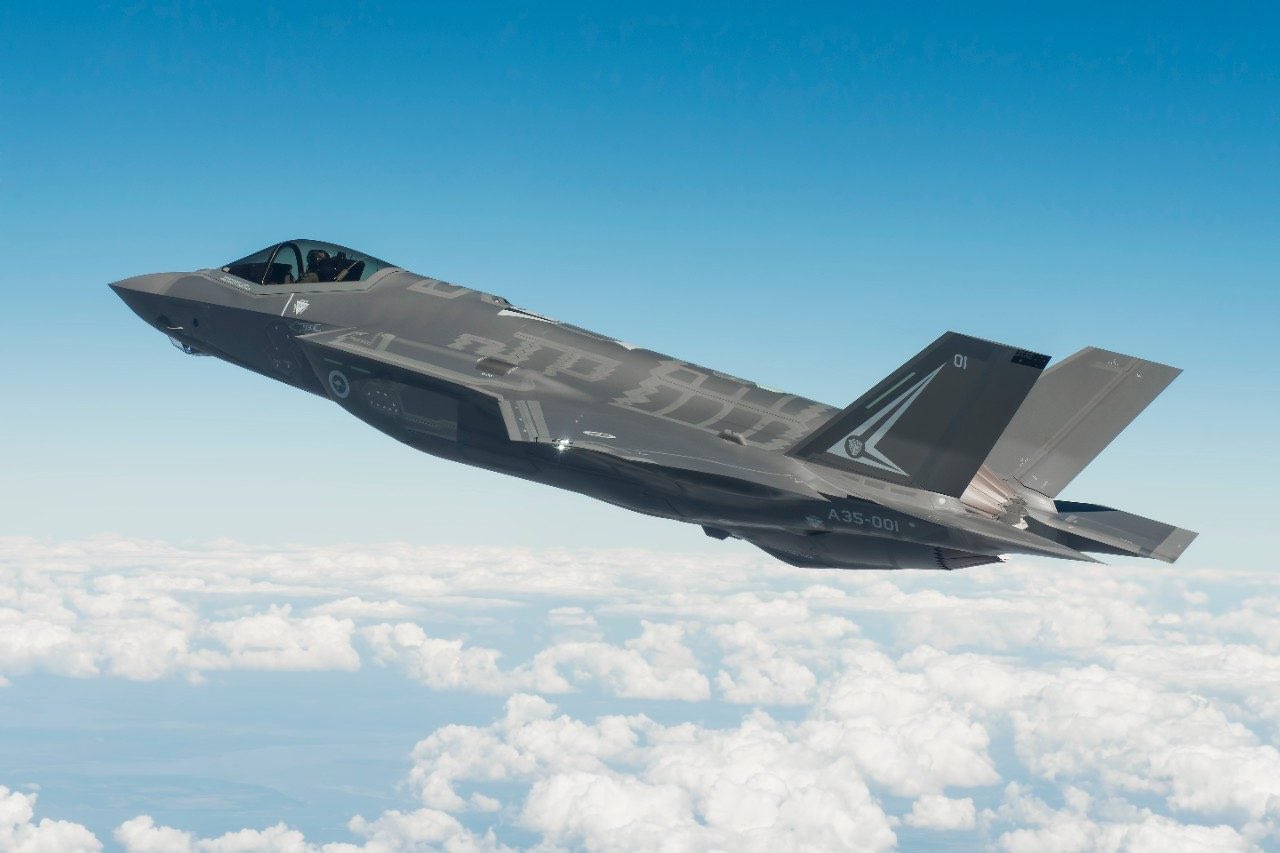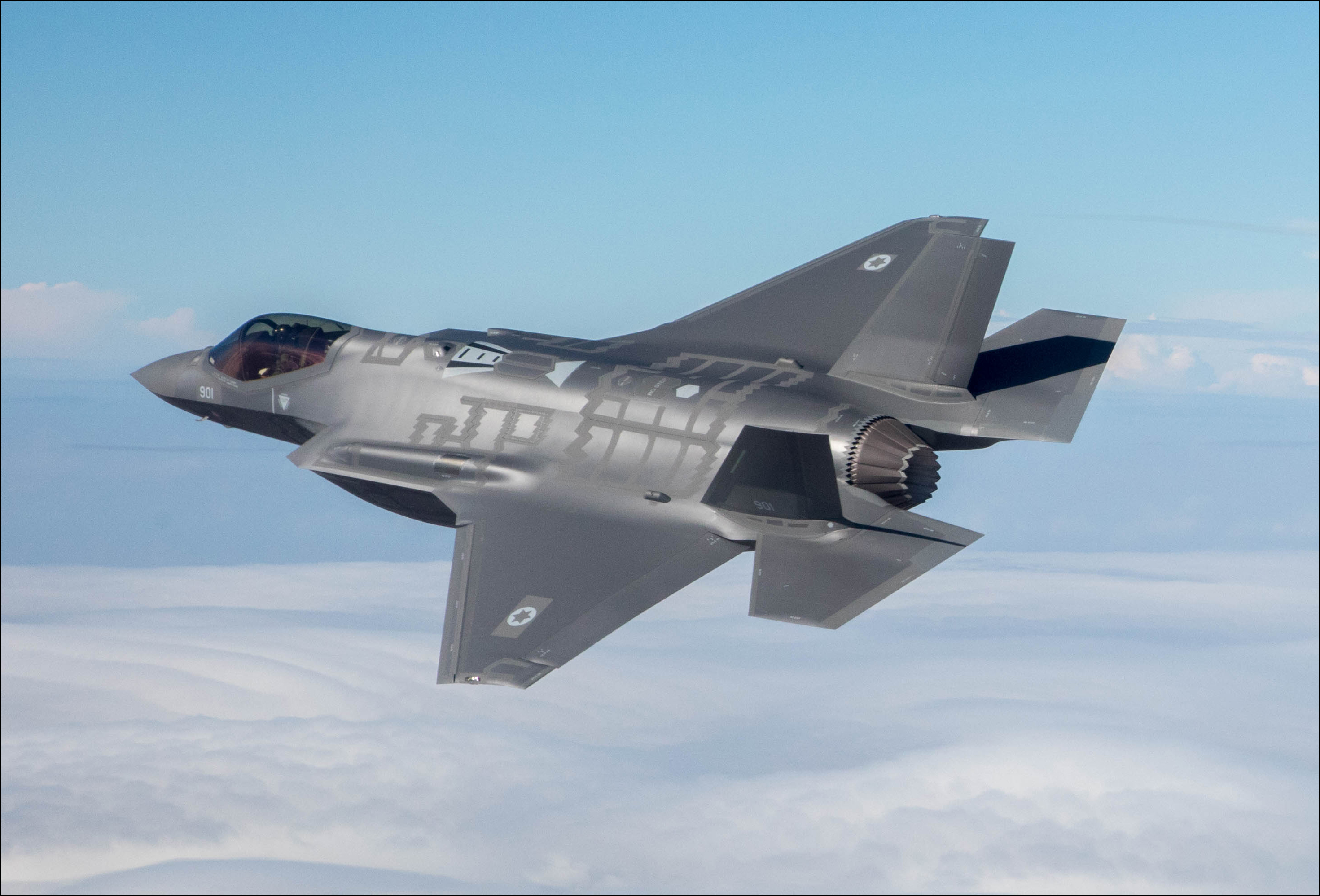Despite the Biden administration’s move to slow down the sale of F-35 stealth fighter jets to the UAE, a senior American official said the US remained “fully committed” to the deal.
‘Impregnable Dome’: Here Is A New Air Defense System That Can ‘Knock Off’ Targets In All Directions — Watch
Earlier, The UAE had confirmed that it signed contracts with the US on former President Donald Trump’s last full day in office to purchase up to 50 F-35 jets, 18 armed drones and other defense equipment in a deal worth $23 billion.
Mira Resnick, Deputy Assistant Secretary of State in the Biden administration, while describing the agreement as a “game-changer for the Emiratis”, said they are engaging with the Gulf state “to ensure that there are clarifications to the numerous assurances that were given to the former administration”.
Resnick refused to comment on what clarifications the US is looking for or what assurances the Emiratis had made. Similarly, the UAE has not disclosed the details of the deal.
The F-35 is already in the region, according to Resnick, whether it’s being flown by Israelis or American F-35s. She went on to say that the US wants the UAE to be able to operate the F-35 in a way that allows them to be our security partners and prevent threats, particularly those from Iran.
According to Resnick, Israel or other allies have expressed no concerns about the F-35 sale to the Emirates.

At the Dubai Air Show, Resnick told the Associated Press that Arab allies are not hoping to buy Russian weaponry as a hedge against American worries about human rights in the region.
Russia is also aiming to leave an impression at the exhibition, showcasing a new attack chopper and displaying the latest Checkmate fighter plane to journalists on the tarmac in a music video-style presentation.
US Military’s Tanker Fleet ‘Brittle & Aged’, Needs Massive Investments To Keep Up With China — Think Tank
On May 17, a high-level Russian delegation met with Abu Dhabi’s crown prince, Sheikh Mohammed bin Zayed Al Nahyan at the air show. Resnick, on the other hand, denied the initiative, stating categorically that the Checkmate had “not in the least” been discussed with the Emiratis.
Human Rights Concerns
The proposed sale of 50 F-35 fighter jets happened at the end of Donald Trump’s presidency, following the signing of the Abraham Accords through which the UAE recognized Israel.
The deal was temporarily halted by the Biden administration to allow time for a review of the agreements, which was prompted by Congressional worries that US military equipment could be used to prosecute the Yemen conflict.

Additionally, concerns over human rights have also hampered the Biden administration’s military sales to Saudi Arabia.
After US intelligence services claimed they believe Saudi Crown Prince Mohammed bin Salman ordered the killing and mutilation of Washington Post columnist Jamal Khashoggi in 2018, Biden committed throughout his campaign to make him a “pariah”, New York Times reported.
Moreover, American munitions fragments have also been discovered in Yemen where people have died as a result of Saudi air attacks. On being asked about those attacks, Resnick said that the US wants to ensure that American weapons are employed in ways that advance US national security.
She further stressed that the US will continue to cooperate with partners to avert civilian deaths.
A Less Stealthy F-35 For UAE?
The F-35 fighter jet deal with the UAE is a politically contentious one. Questions surrounding the UAE’s military actions in Yemen and Washington ensuring Israel’s ‘qualitative military edge’ in the Middle East are intertwined.
For months, reports have circulated that the Biden administration is delaying the sale of the F-35 fighter jet, except if the UAE promises to terminate a 5G contract with the controversial Chinese telecom company, Huawei.
As reported earlier by Reuters, Washington is exploring methods to make Lockheed Martin’s F-35 fighters ‘less stealthy’ for the sale to the UAE.
Authorities are figuring out how to deliver the jets to the UAE while retaining Israel’s regional air superiority. When it comes to purchasing new weapons, Israel normally has a five-year jumpstart over other US partners in the Middle East.
Israel received their first F-35 aircraft in December 2016.

Authorities are aiming to make the F-35s more visible to Israeli radars. However, it’s unclear whether the US will alter the UAE’s F-35 fighter jet or equip Israel with some technology that can keep track of the UAE’s stealth aircraft.
Ryan Bohl, Stratfor’s Middle East and North Africa analyst at RANE, quoted by Forbes as saying that to retain Israel’s qualitative military edge, the US may provide Israelis with offsetting advantages such as additional arms sales or customized F-35s, while the Emiratis receive a more limited version of F-35.
Mark Cancian, a senior consultant at the Center for Strategic and International Studies said that Israel may use the rationale of retaining air supremacy to request long-range weapons like Lockheed’s Joint Air-to-Surface Standoff Missiles or various sorts of ground-based weaponry.
Earlier, as EurAsian Times reported – Israel was initially upset with the deal and the country’s defense officials confirmed that it has asked senior US officials to consider removing barriers to sell F-22 Raptors to the Israeli Air Force, as they look to restore air superiority in the region.
The overseas sale of the F-22 Raptors is forbidden by federal law, under the “Obey Amendment”, which states – “None of the funds made available in this Act may be used to approve or license the sale of F-22 advanced tactical fighter to any foreign government.”
- Contact the author at ashishmichel@gmail.com
- Follow EurAsian Times on Google News




